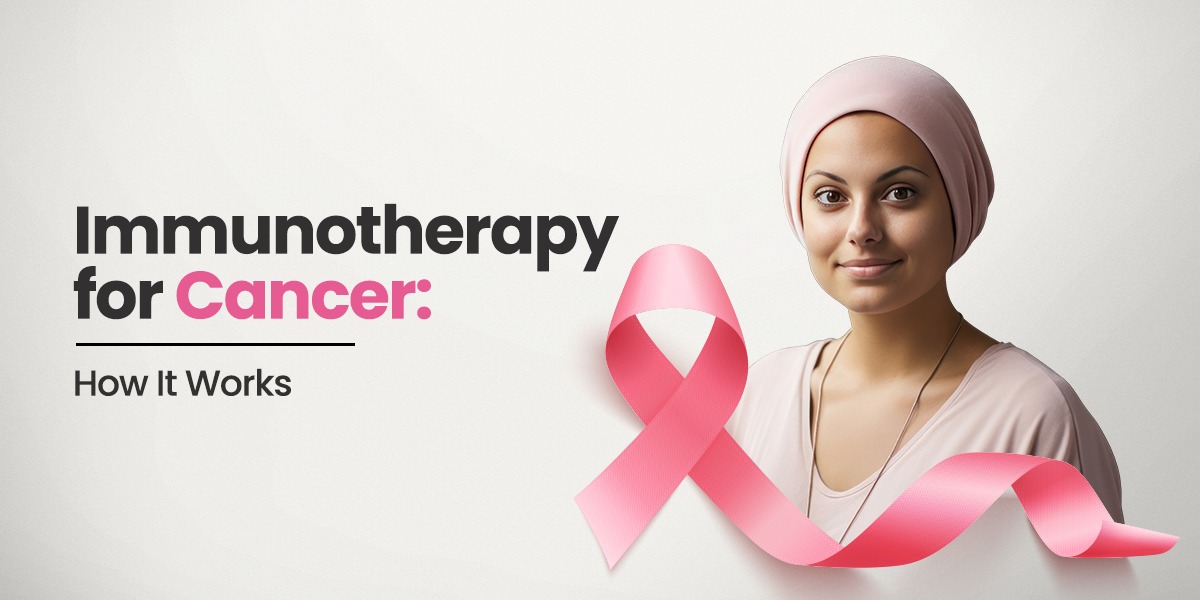How Immunotherapy Works to Fight Cancer: A Complete Guide

Cancer treatment has evolved significantly over the last few decades, and one of the most promising breakthroughs is immunotherapy. Unlike traditional treatments like chemotherapy or radiation that attack cancer directly, this technique empowers the body’s immune system. This helps to identify and destroy cancer cells. This revolutionary method has brought hope to millions of cancer patients worldwide.
How Immunotherapy for Cancer Works:
Immunotherapy is a type of biological therapy that uses substances made by the body or in a laboratory to improve or restore immune system function. The purpose is to enhance the immune system’s ability to work harder or smarter to target and kill cancer cells.
- Enhances natural defense: Immunotherapy enhances your immune response to detect and kill cancer cells.
- Targets cancer directly: Some treatments bind to cancer cells and mark them so that the immune system can identify and attack.
- Overcomes immune resistance: Cancer cells can usually evade immune detection; this therapy is designed to stop cancer from escaping the immune response.
- Establishes immune memory: In some cases, your immune system can recall its previous interaction with cancer cells and respond if it returns.
Types of Immunotherapy for Cancer
The immunotherapy of cancer operates in several ways:
- Monoclonal antibodies: These are generated in the laboratory and bind to sites on the cancer cell, generally assisting the immune system to recognize them.
- Immune checkpoint inhibitors: The release of the “brakes” on the immune system by these agents allows it to work more vigorously against cancer cells.
- Cancer vaccines: These will activate the immune system to prevent cancer and/or treat cancers expressing pertinent antigens.
- T-cell therapy (CAR T-cell therapy): T-cell therapy changes the patient’s T-cells in an in vitro setting so that they can work in different ways against cancer cells, after which the engineered T-cells are infused back into the patient.
- Cytokines: Cytokines comprise signaling proteins that enhance and regulate immune responses to cancer cells.
Conditions Treated with Immunotherapy
Immunotherapy for cancer is being used to treat a variety of cancers, including:
- Lung cancer
- Melanoma
- Bladder cancer
- Kidney cancer
- Head and neck cancers
- Certain types of leukemia and lymphoma
Researchers are continuously testing immunotherapy in clinical trials for many other cancer types as well. The various benefits of this technique are:
- Targeted approach: It precisely targets cancer cells while minimizing damage to healthy ones.
- Fewer long-term side effects: As compared to traditional treatments like chemotherapy.
- Effective for resistant cancers: Immunotherapy often works when other treatments fail.
- Possibility of lasting remission: Some patients enjoy long-term remission and better quality of life.
Common Immunotherapy Side Effects
While immunotherapy side effects vary depending on the type of treatment and cancer, some are more common than others. These are as follows, and they occur because the immune system may attack healthy cells, mistaking them for threats:
- Fatigue
- Fever or chills
- Nausea or vomiting
- Rashes or itching
- Joint or muscle pain
- Diarrhea
- Shortness of breath
In rare cases, more serious complications such as inflammation in organs like the lungs (pneumonitis), liver (hepatitis), or intestines (colitis) may occur. It is important to report any side effects to your doctor immediately to manage them early.
Immunotherapy Cost in India
Factors influencing the immunotherapy cost include:
- Type and stage of cancer
- Frequency and duration of treatment
- Hospital infrastructure and location
- Brand and dosage of drugs used
Patients are encouraged to consult with an experienced oncologist to understand the most cost-effective and suitable options.
If you are seeking personalized cancer care, consult the best oncologist in Lucknow at Regency Healthcare to explore your immunotherapy options in detail.
How to Prepare for Immunotherapy
Preparation is crucial for maximizing the success of immunotherapy for cancer:
- Medical evaluation: Complete physical exams and lab tests are required before starting therapy.
- Infection screening: Your immune system will be altered, so existing infections must be ruled out.
- Medication review: Inform your doctor about all medications, supplements, or allergies.
- Schedule planning: Immunotherapy may require multiple sessions, often weeks apart.
Conclusion
Immunotherapy is transforming the landscape of cancer care with its precision, adaptability, and long-term effectiveness. While it may not replace traditional treatments entirely, it opens new doors for patients who had limited options in the past. As technology and research progress, the reach and success of immunotherapy for cancer will only expand.
If you are considering this approach, understanding the immunotherapy cost, potential immunotherapy side effects, and your overall treatment goals is essential.
Also Read: Cancer Treatment Options To Consider

 Call-an-Ambulance
Call-an-Ambulance



